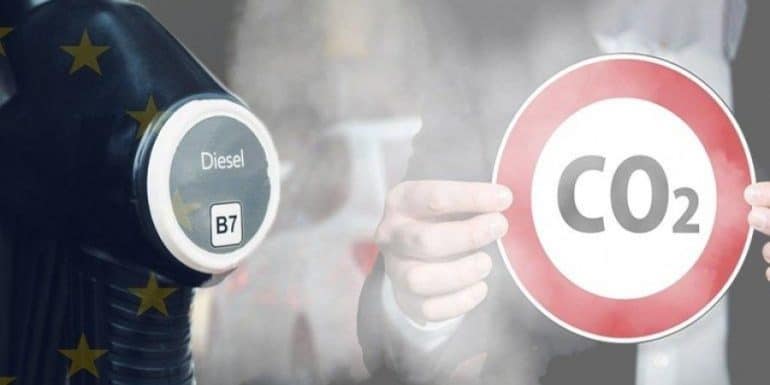The environment ministers of the 27 EU member states approved in the early hours of today the European Commission's proposal to reduce the CO2 emissions of new vehicles to be sold in Europe from 2035 onwards, in other words to ban de facto sales. vehicles with internal combustion engines to be replaced with 100% electric.
For this measure, proposed by the Commission in July 2021, there remains a final compromise in the negotiation with the European Parliament.
It marks the end of private cars, trucks and other light construction vehicles that run on gasoline or diesel in the European Union from 2035, as well as hybrids (petrol or diesel plus electric batteries). This is a key part of the package of directives and laws that must be implemented in the EU in order to achieve its stated goal of achieving climate neutrality around 2050.
At the request of some countries, notably Germany and Italy, however, the 27 agreed to consider giving possible green light in the future to alternative technologies, such as the use of synthetic fuels, or hybrid rechargeable vehicles, if the goal of stopping completely the emissions of greenhouse gases and global warming from vehicles.
The environment ministers, meeting in Luxembourg, also approved an extension for another five years of the CO2 exemption granted to niche carmakers (covering a specialized, small market segment). ) and those who produce less than 10.000 cars a year, by the end of 2035. This clause, also known as the "Ferrari amendment", applies to manufacturers of luxury and / or sports cars.
The measures now need to be negotiated with MEPs, who this month set out their position on the Commission proposal.
This is a "big challenge for our car industry", admitted the French Minister of Energy Transition Anies Panier-Runasser, who chaired yesterday's council. However, she considered it a "need", in the face of competition from China and the United States, especially in the field of electric cars, which are considered the future of the industry. Today's decisions will allow a "planned" transition that we will "accompany", the French minister added.
The European car industry, which is already investing huge sums in the transition to e-mobility, fears the social impact if the transition is too fast.
"The vast majority of the car industry has made the choice of electric cars," said Frans Timmermans, executive vice-president of the European Commission responsible for the Europe Green Agreement.
He reminded, however, that the Commission is open to other technologies. "We are technologically neutral. "What we want are zero-emission vehicles," he explained. "So far, synthetic fuels do not seem to be a realistic solution, but if manufacturers can prove otherwise in the future, we will be open."
Synthetic fuel technology - still in the research stage today - consists of producing CO2 fuel released from industrial activities with low-emission electricity, a cyclical economic approach.
The automotive industry, like the oil industry, has high hopes for this new type of fuel, which could theoretically allow the use of the currently threatened internal combustion engines to be extended.
But this technology is being challenged by environmental NGOs, who consider it very expensive and energy-intensive. They also point out that vehicles that utilize it will emit as much nitrogen oxides as the fossil fuel-equivalent equivalents today.
The car, the main means of transportation for Europeans, accounts for just under 15% of CO2 emissions in the EU as a whole. Carbon dioxide is one of the most commonly blamed gases for global warming.
To reassure the car industry, which is concerned about insufficient demand for 100% electric cars by consumers, the Commission envisages expanding the charger network.
"Along the main roads in Europe, there must be charging points every 60 kilometers," European Commission President Ursula von der Leyen claimed last year.
The car industry often complains about the lack of infrastructure of this kind, especially in the countries of southern and eastern Europe.
Source: RES-EAP
